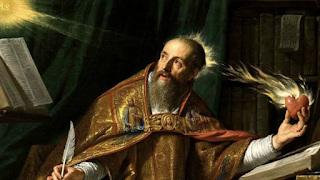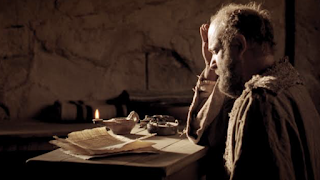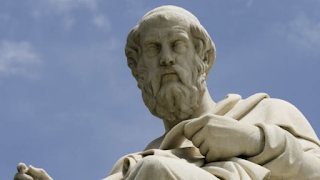Have you ever heard or spoken these words?
“Jesus was punished in our place”
“ He paid our debt”
“ He paid the penalty for sin”
Yep…me too. I’ve since come to realise, these sayings belong to a certain theology named Vicarious Substitution.
According to the Miriam Webster dictionary, vicarious means…
“Performed or suffered by one person as a substitute for another or to benefit or advantage another…”
There are three models of substitution:
- Satisfaction
- Penal
- Moral Government
Before I get into describing these three models I want to examine the doctrine underpinning them.
In the 4th Century, a Catholic monk named Augustine of Hippo, created the doctrine of “original sin”, according to which mankind inherited a “sin nature” from Adam.
If we put our thinking hats on…the idea that a “sin nature” can be inherited, suggests that sin is in our our DNA.
However, scripture tells us that sin is not in our DNA, rather it is a moral choice.
1 John 3:4
…sin is the transgression of the law.
A choice cannot be passed from one person to another (Ez. 18:20)
When we CHOOSE to sin, we simply identify with Adam. Similarly when we CHOOSE to do righteousness, we identify with Christ (Rom. 5:19)
Augustine pointed to “concupiscence” meaning strong desire or lust, as proof of a sin nature abiding within us.
However, the desires of our flesh are NOT sinful in themselves.
They make us susceptible to temptation but temptation only “brings forth sin” when it unites with our will.
James 1:14&15
But every man is tempted, when he is drawn away of his own lust, and enticed.
Then when lust has conceived, it brings forth sin…
Furthermore, Adam and Eve had such desires BEFORE disobeying God in the garden
Gen. 3:6 And when the woman saw that the tree was good for food, and that it was pleasant to the eyes, and a tree to be desired to make one wise, she took of the fruit thereof, and did eat,
and gave also unto her husband with her; and he did eat.
Their fleshly desires were not the RESULT of having eaten from the wrong tree, hence “concupiscence” is not proof of a “fallen nature” passed upon mankind.
In formulating his ideas on “in-bred sin”, Augustine was inspired by Gnostic “dualism”, the teaching that our flesh is evil and our soul is saved through “gnosis” or illumination.
“Dualism” originally came from Greek philosophy, such as Plato’s “theory of forms”.
Despite its Gnostic/Platonic roots, the doctrine of “original sin” was embraced by many reformers, from Martin Luther and John Calvin to John Wesley.
What is most harmful about Augustine’s teachings is the notion of “inability”. That as humans we are unable to live above sin due to our “fallen nature” and therefore require a “substitute” to die “in our place” and provide a magic cover for sin.
It’s in this sense that “original sin” underpins “substitution”.
Now let’s examine the three models of Substitution.
1. Satisfaction
Picture a set of scales.
On one end of the scale is mankind’s sin, the ultimate insult to God’s holiness.
On the other end of the scale is Christ’s death, the necessary offsetting sacrifice of infinite value.
According to Satisfaction, Christ’s death balanced the scales, enabling God to justly remit sin whilst upholding his honour.
Satisfaction was invented by Bishop Ansalem of Canterbury in 1098.
After Ansalem, came Thomas Aquinus (1225-1274)
Thomas Aquinus added a “substitutionary punishment” aspect to Satisfaction. He also was the first to conceive the idea that Jesus “paid the penalty” for our sins.
This and Martin Luther’s “blessed exchange” (1483-1546), in which the believer’s sin is transferred to Christ and Christ’s righteousness transferred to the believer merely because he believes it to be so, laid the ground work for what was to come…
2. Penal Substitution
According to penal substitution, justice demands that sin be punished.
Jesus therefore assumed our guilt and was punished in our place. He bore the full wrath of God in order to pay the penalty for our sins. With the “penalty paid” God is able to justly remit sin.
Penal substitution was invented by John Calvin (1509-1564)
It’s interesting to note that Calvin was a criminal lawyer thus he viewed the cross through that lens.
However, not everyone liked Calvin’s ideas, so along came the third model of substitution…
3. Moral Government
According to Moral Government, Christ’s death served as a substitute for punishment, demonstrating that God takes his law seriously. This enabled God to extend mercy without undermining his moral government.
This theory came from Hugo Grotius (1583-1645)
What do all three models of substitution have in common?
- The purpose of Christ’s death was to APPEASE God and ENABLE him to forgive sin
- Christ’s death (in our place) is the BASIS upon which God forgives sin
Ask yourself these questions…
Is God some pagan volcano god, that must be APPEASED through human sacrifice?
Did God, creator of the universe, have to be ENABLED to forgive?
Does God forgive on the BASIS of his son’s death, or does he forgive on the basis that we’ve forsaken our old life of sin?
Substitution turns the spotlight on God and away from us. He’s the one who needed to be appeased and enabled. He had to change.
So what’s missing from vicarious substitution? Us changing.
Being Crucified WITH Christ, DELIVERED from sin and inwardly PURGED.
It makes sense that deliverance and purging is left out of the equation when one considers that “original sin” underpins “substitution”.
If sin is in our DNA, how can we be delivered and purged from it? We can’t. All we can do is “trust” and “believe” that Christ’s death acts as a counterbalance to sin, or that he paid our penalty.
I now want to examine two words, Justification and Sanctification.
Justification 1347. δικαίωσις dikaíōsis declared a righteous or just person
Sanctification 38. ἁγιασμός hagiasmós holiness and separation unto God
Martin Luther, who spear-headed the reformation, is famous for saying we are justified “by faith alone”. To him, faith was a passive principle of the mind, disconnected from deeds.
Hence Substitution, influenced by Luther’s “faith alone” and “blessed exchange”, turns justification into a legal adjustment whereby we are “saved” in a “positional” sense only, with Christ’s righteousness imputed (not imparted) to us.
In this way, vicarious substitution utterly disconnects justification from sanctification and from salvation itself, for there can be no righteousness without holiness!
There is also no salvation without the indwelling Spirit (Rom. 8:9) and the Holy Spirit won’t enter a dirty vessel!
Why did Jesus die on the cross?
- To deliver us from sin
- To purge our conscience
Christ’s blood does not represent him being punished in our place to pay the penalty for sin.
Christ’s blood represents the spirit of his life whereby we are delivered from sin and inwardly purged.
The spirit of his life is how he lived his entire life, culminating in crucifixion.
Hence freedom and cleansing is found in following Christ’s example of self-sacrifice.
Rom. 8:2
For the law of the Spirit of life in Christ Jesus hath made me free from the law of sin and death.
Penal Substitution claims that Christ died “in our place” to pay the “penalty for sin”.
However the bible teaches that Christ died to provide an example (1 Peter 2:21) that, when followed, ransoms us from bondage to sin (Titus 2:14)
Through obedience to the truth (1 Peter 1:22), Christ's blood (representing his Spirit) also purges our conscience.
Hebrews 9:14&15
How much more shall the blood of Christ, who through the eternal Spirit offered himself without spot to God, purge your conscience from dead works to serve the living God?
And for this cause he is the mediator of the new testament…
Jesus was the mediator of the New Testament for “this cause”…to purge our conscience NOT to pay our penalty.
Repentance is being “crucified WITH Christ” (Gal. 2:20) and this is the ONLY way (John 14:6) to be delivered from sin and inwardly purged.
Vicarious Substitution is believed by nearly all in Christendom, yet it is a two-dimensional counterfeit copy of the real, life-changing gospel of Jesus Christ.























